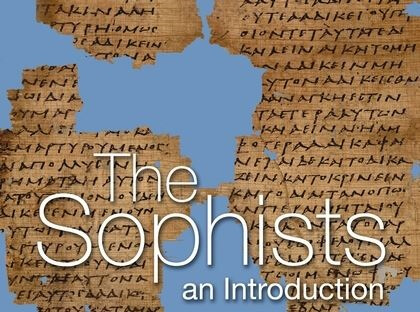What is Sophism? An Urdu Introduction

سوفسطائیت۔ پانچویں صدی قبل مسیح میں یونانی عقلاء کی تحریک
The term “sophism” comes from the Greek “Sophos” or “Sophia” (meaning “wise” or “wisdom”). It is originally referred to any expertise in a specific domain of knowledge or craft. After a period where it mainly referred to poets, the word came to describe general wisdom. And especially, wisdom about human affairs. Over time, it came to denote a class of itinerant intellectuals who taught courses. Who speculated about the nature of language and culture. Who was employees rhetoric to achieve their purposes (which was generally to persuade or convince others)? What is Sophism? An Urdu Introduction
Well Regarded
Sophists had considerable influence in their time and had largely well-regarded. They were generally itinerant teachers who accepted fees in return for instruction in oratory and rhetoric. And they emphasized the practical application of rhetoric toward civic and political life. Their cultural and psychological contributions played an important role in the growth of democracy in Athens. Sophists were also some of the world’s first lawyers, making full use of their highly-developed argumentation skill.
Early Sophists
Plato was especially dismissive of Gorgias, one of the most famous and successful of the early Sophists. Sophism had thought capable of perverting the truth because it had emphasized practical rhetoric rather than virtue. And taught students to argue any side of an issue. In most cases, our knowledge of Sophist thought comes down to us from fragmentary quotations that lack context. Many of these from Aristotle, who, like his teacher Plato, held the Sophists in slight regard.
Answers to All Questions
The early Sophists claimed that they could find the answers to all questions. Which, along with their practice of taking fees and their questioning of the existence. They led to popular resentment against Sophist practitioners, ideas and writings. Some writers have included Socrates as a Sophist. Although he was scrupulous in accepting no fees and making no claims of superior wisdom. And his most illustrious student, Plato, depicts Socrates as refuting the Sophists in several of his “Dialogues”.
Note: This article was originally published on our related blog. We have merged content from our educational subdomains to provide easier access in one place. The original post is still available at: https://videos.urdutubes.com/2019/04/what-is-sophism-an-urdu-introduction.html
All content is owned and authored by us, and redistribution or reuse is not allowed without permission.
Note: This post is part of our content merger from multiple educational subdomains. To access the original content, visit: books.urdutubes.com for book-related content, PDFs, and downloads, or videos.urdutubes.com for video-related posts. All content is owned and authored by us, and redistribution or reuse is not allowed without permission.




![Khawateen Digest February 2025 [Download PDF] Khawateen Digest – February 2025 Edition: A Must-Read for Every Woman! The February 2025 issue of Khawateen Digest is packed with engaging stories, insightful articles, and practical tips that cater to the modern woman. From inspiring tales to expert beauty and health advice, this edition has it all. Whether you're in the mood for a gripping story or seeking helpful tips for daily life, this digest will keep you hooked. Don't miss out on the latest edition – download the Khawateen Digest February 2025 now and enjoy a well-rounded read that speaks to every woman's interests.](https://www.urdutubes.com/wp-content/uploads/2025/04/Khawateen-Digest-February-2025-Download-PDF-218x150.jpg)
![Khawateen Digest January 2025 [Download PDF] Khawateen Digest January 2025 [Download PDF]](https://www.urdutubes.com/wp-content/uploads/2025/04/Khawateen-Digest-January-2025-Download-PDF-218x150.jpeg)
![Kiran Digest April 2024 [Download PDF] Kiran Digest April 2024 [Download PDF]](https://www.urdutubes.com/wp-content/uploads/2025/04/Screenshot-2025-04-13-113317-218x150.png)
![Kiran Digest March 2024 [Download PDF]](https://www.urdutubes.com/wp-content/uploads/2018/05/KiranDigestMay2018255BDownloadFreePDF255D.jpg)







